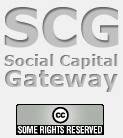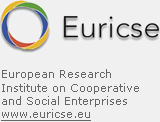Previous research has found a steady increase in the number of people involved in emerging forms of civic engagements such as Internet campaigns, protests, political consumerism, and alternative lifestyle communities. Verba et al. (1995) have established that various forms of political participation in the United States follow a pattern of structural inequality, based on income, education, gender and civic skills. The growing popularity of emerging action repertoires forces us to re-evaluate the claims of this literature. Do these patterns of inequality persist for the emerging action repertoires across advanced industrialized democracies, or are they becoming even stronger, as Theda Skocpol (2003, 2004) argues? The results of this cross-national analysis with longitudinal comparisons suggest that gender inequalities in emerging political action repertoires have substantially declined since the 1970s, whereas other forms of inequality have persisted. However, contrary to the more pessimistic claims about a ‘participation paradox’, there is no evidence that inequality based on socio-economic status has substantially increased since the 1970s.
Stolle, D., Hooghe, M. (2009). Shifting Inequalities? Patterns of Exclusion and Inclusion in Emerging Forms of Political Participation. WZB Discussion paper 2009-204








